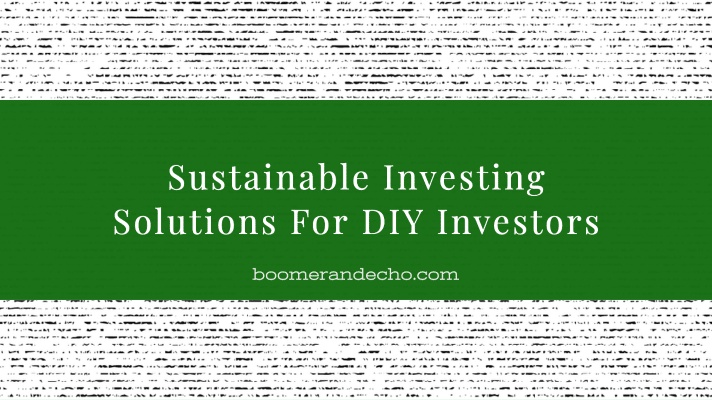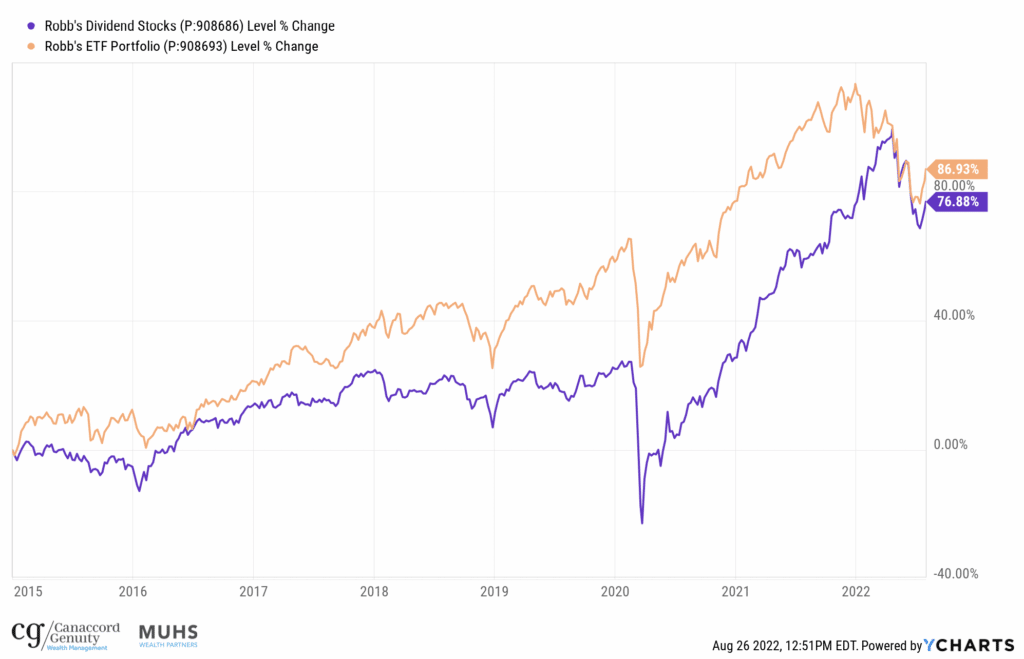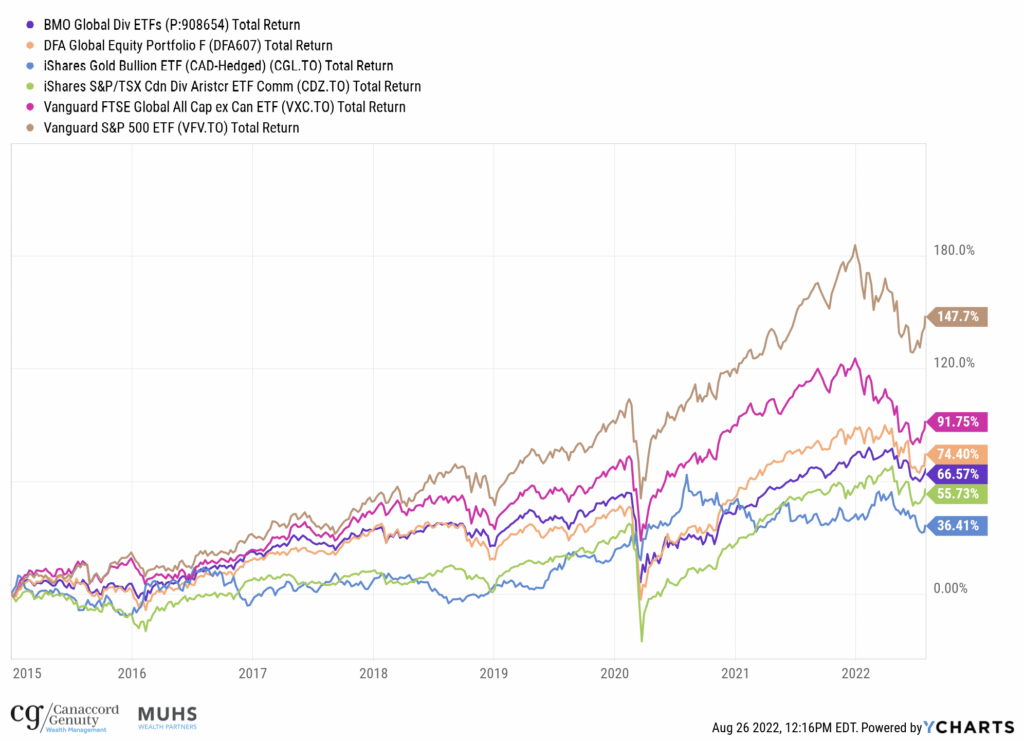
February is RRSP season, which for many Canadians means an annual trip to the bank to make an RRSP contribution before the deadline (March 1, 2023). It might be tempting to take out a loan if you don’t have the cash available to make a contribution – the rationale being that in one shot you’ll boost the savings in your retirement account and then use the deduction to increase your chances of getting a tax refund.
RRSP loans are great for banks because they get the loan, plus an investment on their books. No wonder lenders so heavily promote RRSP loans at this time of year.
Related: How to get more out of your RRSP this year
It’s not just Canada’s big five banks pushing RRSP loans. Online banks and lenders are also getting in on the act. Tangerine bank customers may have been surprised to find a pre-approved RRSP loan listed on their ‘My Account’ dashboard:

Most RRSP loans are used to make an RRSP contribution before the deadline in order to maximize contribution room and save on taxes. Interest rates on these loans can be obtained at or near prime rate, and the loan is paid back over a period of nine to 12 months – typically in monthly installments.
Borrowers beware. Financial institutions, both of the online and brick-and-mortar variety, employ salespeople and develop promotional materials, charts, and testimonials with the aim to convince you that a loan is a good idea. It might not be.
A chart that tries to highlight the tax savings on an RRSP contribution, for example, might show a borrower in the highest marginal tax rate to make the figures look good. If you happen to be in a lower tax bracket, you’ll get less of a refund.
One behavioural argument against taking out an RRSP loan is that if you didn’t have the discipline to contribute regularly to your RRSP throughout the year, how do you expect to stick to a loan repayment schedule over the next 12 months?
Financial author Talbot Stevens says our behaviour is the key to making the RRSP loan strategy successful.
“Even an undisciplined investor can benefit from the forced savings of paying off a loan – as long as it is well within their financial and emotional comfort zone,” he said.
Small top-up loans are generally accepted as a sound financial planning strategy and Stevens argues that once started, the RRSP loan becomes a forced savings plan, like a mortgage, that is not likely to be stopped.
With that in mind, let’s use an example of an investor who is in a 40% tax bracket, has $1,000 to contribute to her RRSP before the deadline, and has $5,000 in available contribution room.
Related: Are you putting dry pasta in your RRSP?
A short-term RRSP loan can top-up her annual RRSP contribution to the maximum. She simply borrows the extra $4,000 to make a $5,000 contribution and, at tax time, she’ll receive a $2,000 refund. The refund is not enough to pay off the entire RRSP loan, but she applies it against her loan and then pays off the remaining $2,000 balance over the next year.
This type of approach can boost your retirement portfolio in a hurry, but it can also lead to an endless cycle of borrowing ahead to catch-up on RRSP contributions. Can you afford to make regular RRSP contributions when you’re constantly making payments on last year’s contribution? In other words, at the end of the RRSP loan you might have to catch-up the contributions you didn’t make while you were repaying the loan.
At some point you’ll have to break the cycle. With that in mind, a debt-free approach to RRSPs would have you determine the amount you would have made in RRSP loan payments, then, use that amount to make regular RRSP contributions going forward. It may take a while longer to catch up but you’ll have no interest costs.
Final thoughts on RRSP loans
Using an RRSP loan can be a powerful strategy to boost your RRSP contributions and build your retirement portfolio. However, use caution when borrowing to invest and remember that this approach only works when you have the discipline to save your tax refund or use it to help pay off the loan.
Related: How an RRSP loan turned my $12,000 contribution into $20,000
Banks fuel our need for instant gratification with their well-timed marketing during RRSP season. But an RRSP loan isn’t necessary if repaying a loan doesn’t fit into your financial plan, or if you had the discipline to make regular contributions to your RRSP throughout the year.
“Truly disciplined investors don’t need the forced commitment of an RRSP loan. Those who acknowledge their tendency to procrastinate or become distracted from their retirement goal might benefit from the forced discipline of making payments on an RRSP loan,” says Stevens.
Well said.

A counterfactual is when we create possible alternatives to events that have already occurred – something contrary to what actually happened. We do this all the time. “If only I had set my alarm, I wouldn’t have been late.” “If only I hadn’t been speeding, I wouldn’t have wrecked my car.”
We also use counterfactual thinking with our investing decisions. “If only I had put $10,000 in the Amazon IPO.” “If only I would have cashed out before the market downturn.”
Counterfactuals can be both negative and positive. “If I didn’t invest that lump sum in April 2020 I wouldn’t have as much money today.”
I made a big investing decision in January 2015 when I sold all my dividend stocks and switched to total market indexing. Sometimes I think about the counterfactuals – what would have happened if I made a different choice?
Related: Exactly How I Invest My Own Money
I could have stayed the course and stuck with my dividend paying stocks. I could have sold the stocks and bought a dividend ETF. I could have gone all-in on the Canadian, US, or international markets. I could have turned into a gold-bug and invested in gold ETFs (or buried it in my backyard!). I could have followed the five-factor investing model.
I thought it would be interesting to run a simulation, an investing multiverse of madness, that showed what my returns would have been if I made different investing choices with my $100,000 back in 2015.
I sought out help from Markus Muhs, a Senior Portfolio Manager at Canaccord Genuity Wealth Management, to pull together the return data and fancy charts to make this multiverse come to life. Markus also shared his thoughts on the various investing approaches and outcomes.
Robb’s Investing Multiverse of Madness
To set the scene, we started with a $100,000 portfolio on January 1st, 2015. That is approximately when, in real life, I sold 24 Canadian dividend stocks and put the proceeds into 25% VCN (Canadian equities) and 75% VXC (international equities). Then, on March 4, 2019, I sold VCN and VXC and bought Vanguard’s All Equity ETF, VEQT (which I still hold today).
In the multiverse, infinite variants of Robb could have made an infinite number of investing decisions from January 1st, 2015, to July 31st, 2022 (the date of our sample).
Markus and I looked at the following examples:
- Real life Robb’s returns using VCN/VXC to March 2019 and then VEQT to present
- Robb’s returns had he stuck with his portfolio of Canadian dividend paying stocks
- Robb’s returns had he sold the dividend stocks and bought iShares’ CDZ (his benchmark index)
- Robb’s returns had he sold the dividend stocks and bought the global dividend ETF trio of ZDV, ZDY, and ZDI
- Robb’s returns had he sold his stocks and invested in global equities, ex Canada (VXC)
- Robb’s returns had he sold his stocks and sunk everything into the S&P 500 (VFV)
- Robb’s returns had he sold his stocks and invested in French-Fama factor-based global equity portfolio (from DFA)
- Robb’s returns if he sold his stocks and bought iShares’ Gold Bullion ETF (GLD)
“I ran back tests on Robb’s previous strategy of owning a basket of Canadian dividend stocks, the ETF strategy he shifted to in 2015, and then various other assets he could have potentially pivoted towards instead. These back tests were done using Y-Charts’ portfolio modeller, which allowed me to periodically rebalance his hypothetical dividend portfolio and make the change in March 2019 to his ETF portfolio. Various other asset classes were also charted, measuring total returns from Dec 31, 2014 to July 31, 2022.” – Markus Muhs.
*Note that all return data is gross and excludes any trading commissions or fees.
Which variant of Robb had the best returns over the past 7.5 years? Read on to find out.
Robb’s Investing Decision #1: Total Market Indexing
For the first scenario – my real-life scenario, Markus ran an ETF back test to recreate almost exactly what I did: moving all of my money into 25% VCN (Vanguard FTSE Canada All Cap), and 75% into VXC (Vanguard FTSE Global All Cap ex Canada), with annual rebalancing, until March 4, 2019, when I swapped into the more convenient all-in-one ETF portfolio, VEQT (Vanguard All Equity Portfolio), when it became available.
In this scenario $100,000 grew to $186,930; a compound annual growth rate of around 8.5%.
Robb’s Investing Decision #2: Canadian Dividend Stocks
This is my most common counterfactual – what if I had stayed in Canadian dividend stocks? How would my portfolio have performed?
Unfortunately, a few of my stocks became defunct in the years after 2015, so it was not easy for Markus to back test this perfectly. That included the merger of Agrium and Potash – both of which I held in 2015. We added CDZ as a place holder for the defunct stocks, and to round out the total number to an even 20 (with 5% allocated to each).
We also assumed that this variant of Robb didn’t continue to own Canadian Oil Sands past Jan 1st, 2015 (combining that money with its acquirer, Suncor).
“It’s not perfectly scientific, but let’s say theoretically this is what Robb did. One would assume he may have been more active in selling some companies and adding new ones from time to time, but in this back test I have him equal-balancing the stocks at the beginning of each year and reinvesting all dividends,” said Markus.
In this, “stay the course with Canadian dividend stocks” scenario, the initial $100,000 would have grown to $176,880; a compound annual growth rate of just under 8%.
Indexing versus Dividend Stocks: The Comparison
The overall performance ended up being similar between the two strategies. Since we couldn’t perfectly simulate the dividend stock scenario, we agreed that it wouldn’t be fair to declare the ETF strategy an absolute winner.
“What’s remarkable, though, is how little effort the ETF strategy likely took on Robb’s part, versus researching, following, and rebalancing the dividend strategy,” said Markus, adding “the global vs Canada outperformance is quite obvious for the first six years, while the out-performance of Canadian value companies more recently closed the gap.”
Markus said that while the dividend strategy consistently churned out a high yield, an important metric to a lot of investors, this would have been of no value to Robb in his accumulation years and might just have added to the time he put into the portfolio.
The other variants of Robb in the multiverse did as well as we could have expected, in hindsight.
Robb’s Investing Decision #3: iShares’ CDZ
This variant of Robb still really liked Canadian dividend stocks, but also didn’t want to deal with managing a portfolio of 25+ stocks.
He chose the iShares’ S&P/TSX Canadian Dividend Aristocrats Index ETF (CDZ) which returned 6.02% annually.
This was obviously a smarter and easier solution to manage than the stock portfolio, however in both cases it can’t be guaranteed that Canadian dividend stocks will consistently perform as well as they did over this short time period.
Robb’s initial $100,000 investment grew to $155,730.
Robb’s Investing Decision #4: Global Dividend ETFs
Another variant of Robb similarly like dividends but recognized the value of being globally diversified.
He divided the money equally between three BMO dividend ETFs (Canadian, International, and U.S.).
This strategy underperformed, at a compound annual growth rate of 6.9%, due to weak international equity returns (close to 0% over the time period) and missing out on the biggest drivers of returns during that time: large cap U.S. growth stocks.
Robb’s initial $100,000 investment grew to $166,570.
Robb’s Investing Decision #5: Vanguard’s VXC
This variant of Robb went with the simplest solution available in 2015 and stuck with it.
With VEQT not yet available, and not wanting to bother rebalancing two individual ETFs, Robb put everything into Vanguard’s All World ex Canada ETF (VXC) and didn’t look back.
Canadian stocks underperformed during this time period, so this approach would have returned an impressive 9.0% compound annual growth rate between Jan 2015 and July 31, 2022.
Robb’s initial $100,000 investment grew to $191,750.
Robb’s Investing Decision #6: The S&P 500
The variant of Robb who put all his money into the S&P500 via Vanguard’s VFV, eschewing all Canadian and international equity investments, would have seen the best performance of all strategies in the investing multiverse of madness.
Robb’s initial $100,000 would have grown to more than $247,700; a whopping 12.7% compound annual growth rate.
“Obviously, we know in hindsight that the U.S. markets outperformed Canadian, international, and emerging market stocks by a wide margin over the time period, but it would have been impossible to predict this ahead of time,” said Markus.
Robb’s Investing Decision #7: Five-Factor Global Equities
In another universe of the multiverse Robb employed a diversified French-Fama factor-based approach.
Markus said that although the fund wouldn’t have been available to him as an individual investor (nor were similar multi-factor ETFs at the time), he used the Dimensional Fund Advisors (DFA) Global Equity Portfolio in the comparison.
This approach would have also underperformed, slightly, at 7.61% annually, as market returns over the past seven years were largely driven by the large cap growth stocks that are underweighted in such an approach (which tilts to small cap and value stocks).
Robb’s initial $100,000 grew to $174,400.
Robb’s Investing Decision #8: Gold
In the final universe, Robb is a gold bug and simply dumped all his money into the iShares Gold Bullion ETF (CGL). Gold bug Robb ended up with the worst outcome, at an annual growth rate of 4.18%.
This grew his original $100,000 portfolio from $100,000 to $136,400.
Comparing the Investing Multiverse Outcomes
It was clear that the variant of Robb who invested his entire $100,000 portfolio into the S&P 500 enjoyed the best outcome in the multiverse.
And the variant of Robb who fell down conspiracy theory rabbit holes and invested his $100,000 in gold had the worst outcome.
We also know, with the power of hindsight, that it was US stocks – large cap US growth stocks in particular, led by Apple, Amazon, Alphabet, etc. – that drove the majority of returns since 2015.
It’s important to understand why a particular strategy might have underperformed, or outperformed. If US stocks led the way, that means on balance an approach that was overweight to US stocks would have likely had a more positive outcome than an approach that was underweight US stocks.
Final Thoughts
It’s interesting to think about counterfactuals – how a scenario might have played out if you had made different choices. But you can easily make yourself sick with regret over missed opportunities.
We should strive to make the best decisions we can with the information we have available. But life is surprising, and so we shouldn’t be surprised when we get a different outcome than we were expecting.
In my case, the overwhelming evidence convinced me to abandon my individual stock picking and switch to index funds. My second, but equally important goal was to simplify my life and reduce the time spent on my investment portfolio. A one-fund solution that automatically rebalances requires exactly zero effort to manage.
The investing multiverse was a fun thought experiment on how my big investing decision could have led to a wide range of different outcomes.
My portfolio performed third-best out of these particular options.
Do I wish I had invested all my money into the S&P 500? Not really. I know that certain sectors, countries, and regions will have their ups and downs over time. US stocks may have a long period of underperformance, in which case I would regret not diversifying.
Markus Muhs, CFP, CIM is based in Edmonton and works with families in Alberta, B.C. and Ontario, providing comprehensive financial planning and managing their wealth through a low-cost evidence-based approach.
The above is for general information only and does not constitute investment advice. Any opinions are those of the author/contributor and do not represent those of Canaccord Genuity Corp. All information included herein has been compiled from sources believed to be reliable as of the date of the article. Investing in equities, mutual funds and ETFs is not guaranteed, values change frequently, and past performance is not an indicator of future performance.

A growing number of investors are concerned about the environmental, social, and governance (ESG) aspects of economic activities and want their investment portfolios to reflect this concern. This demand has been met by the investment industry with an explosion of new mutual funds and ETFs described as sustainable and socially responsible.
However, as the landscape for sustainable investment products grows, investors need to look with a critical eye to ensure that what’s under the hood (the investment methodology) aligns with their values.
Last July, CIBC Asset Management launched a suite of sustainable ETFs designed to help DIY investors build their own sustainable portfolios. The product suite includes three individual ETFs representing Canadian equities, global equities, and Canadian bonds. It also includes three all-in-one ETF solutions for conservative, balanced, and growth investors.
I reached out to Aaron White, Vice-President, Sustainable Investments at CIBC, to get his take on these issues and more. Here’s our Q&A session:
CIBC Sustainable ETFs
- Sustainable or responsible investing can mean different things to different investors. How did CIBC determine the appropriate ESG criteria for these funds? Is there a lot of turnover in these funds?
This is a great point and highlights the challenge facing investors looking to integrate their values with their investment portfolios. With no two solutions being the same, investors can find it confusing to navigate the market and really must do an extra layer of due diligence and understand the methodology that drives the responsible or sustainable outcome.
CIBC Asset Management undertook a consultation with our existing clients to understand what criteria were most important to investors. We developed a methodology that offers broad exclusions that we believe aligns with a diverse group of investors seeking more sustainable investments. The funds will typically be lower turnover due to their focus on higher quality ESG companies.
- What’s the difference between positive and negative screens and how did CIBC use these to build their sustainable funds?
Negative screening refers to restricting the investible universe by excluding companies based on their business involvement. Positive screening, on the other hand, focuses on investing in companies based on favourable characteristics.
For example, with CIBC Asset Management’s Sustainable Investment Solutions, our portfolio uses a combination of both. We restrict investment in industries like tobacco, alcohol, gambling, adult entertainment, weapons, recreational cannabis, and fossil fuels. The specifics of how we determine the companies to restrict are outlined in our publicly available framework.
We then employ positive screening by implementing a “best-in-class” approach, where portfolio managers will only invest in companies who relative to their sector peers are median or better at managing ESG risks as determined by our own primary research. We believe this approach provides investors with values alignment by avoiding companies with certain business involvement and produces a portfolio of high quality companies that have strong peer relative ESG characteristics.
- Do ESG investors sacrifice returns by investing with their values? How do ESG funds compare to similar non-ESG funds over time?
First, I think we need to reframe what it means to be an “ESG investor”. The term has become a catch-all that does not clearly define what it means to invest responsibly and has created a lot of confusion for investors.
ESG is primarily focused on uncovering non-financial factors that are financially material to a company and ensuring that those considerations are integrated into the holistic assessment of a company and industry. This leads to more informed decision making and we believe to better results for clients. This type of investing does not restrict in any way the investment universe.
There are then investment solutions that are focused on delivering additional outcomes to investors beyond financial returns. These include negative and positive screening that we have already discussed but also include thematic and impact investing. Depending on the specific strategy that an investor selects the investment universe may be constrained or the opportunity set more narrowly defined.
Ultimately, investors need to weigh their non-financial objectives alongside their financial goals to determine an appropriate approach that meets their holistic needs. Some investment options that are more restrictive may perform very different from a broad benchmark and may narrow the set of available investments.
For example, an investor who chose to not invest in traditional energy companies due to their personal values would have outperformed from 2015-2021 and would have underperformed over the last 18 months. An investor who chooses to align their investment portfolio with their values must understand the implications and how the decision may impact their portfolio over a cycle.
- Let’s talk about portfolio construction. I’m a big fan of all-in-one products, and I see that CIBC offers three all-in-one sustainable ETFs, depending on the investor’s risk profile (conservative, balanced, and growth). You also offer three individual ETFs (Canadian bonds, Canadian equities, and global equities), presumably for investors to construct their own portfolio weightings. Do you see these as core portfolio holdings, meaning investors can properly diversify with a single all-in-one ETF or a selection of the three individual ETFs?
Yes, we believe that our balanced portfolios provide broad enough diversification to meet the needs of the majority of investors. These all-in-one solutions are tactically managed to take advantage of market opportunities as they present themselves. This allows investors to select a portfolio that matches their risk tolerance and take a set it and forget it approach.
For investors that would like to be a bit more hands on, our three core asset class options allow them to customize a portfolio that meets their unique needs and complement those core positions with other solutions.
- The clean energy ETF (CCLN) looks interesting. Is this an add-on, more speculative play for investors looking for exposure to the clean energy sector? Is there a manager at the helm, or does the clean energy index follow a more systematic approach to stock selection?
We view the clean energy ETF as an add-on for longer term investors that would like to participate in the opportunities presented by the climate transition. Investors in this industry need to be prepared to weather volatility as there has been significant speculation in the space. However, we believe that a patient investor that is committed to the long term can significantly benefit from the structural tailwinds afforded by government regulation and the pressure to transform our energy system.
While the index follows some systematic guidelines, our energy specialist team in Denver, headed by Lance Marr is responsible for the oversight of the index. The intent is to ensure investors have a pure play exposure to the companies and industries that will be the leaders of the new clean energy economy.
- As ESG investing becomes more mainstream there’s concern about so-called greenwashing. How would you say that CIBC and its sustainable investment strategies represent a commitment to ESG mandates and is not just following a popular investing trend?
At CIBC Asset Management, we believe in authenticity and transparency. Investors need to understand exactly what you’re trying to accomplish and then you must do what you say. On this basis, we have published the framework that outlines the exact methodology that underpins our sustainable investment solutions. This allows investors to understand exactly how the investment universe is constructed and whether that aligns to their values and personal goals.
We also produce monthly commentaries, annual ESG and Stewardship reporting, and various pieces of thought leadership, which allows our investors to understand our firm’s beliefs and how we are actioning those beliefs in the market. We believe this transparency allows investors to judge our authenticity and make an informed decision when choosing to invest with us.
- Finally, tell us about impact donations and where that money goes.
We felt it was important to align the causes our organization participates in with the values of our clients. To this end, we are donating a portion of the management fees we earn from our Sustainable Investment lineup to charities and non-profits that are focused on facilitating the climate transition.
In 2021 we donated to the Pembina Institute, a Canadian think tank that advocates for strong and effective policies that support Canada’s clean energy transition. We are excited about continuing to grow our annual charitable footprint and contribute to facilitating a just energy transition.
Final Thoughts
Thanks to Aaron White for taking the time to answer my questions about sustainable investing and CIBC’s approach to its Sustainable Investing Solutions.
Readers can learn more about CIBC’s sustainable ETF products here.
Again, these funds include:
- CIBC Sustainable Canadian Core Plus Bond Fund (CSCP) – MER 0.40%
- CIBC Sustainable Canadian Equity Fund (CSCE) – MER 0.60%
- CIBC Sustainable Global Equity Fund (CSGE) – MER 0.75%
And the all-in-one ETFs:
- CIBC Sustainable Conservative Balanced Solution (CSCB) – 40% stocks / 60% bonds – MER 0.65%
- CIBC Sustainable Balanced Solution (CSBA) – 55% stocks / 45% bonds – MER 0.70%
- CIBC Sustainable Balanced Growth Solution – 70% stocks / 30% bonds – MER 0.75%
This article was sponsored by CIBC Asset Management. All opinions are my own.


